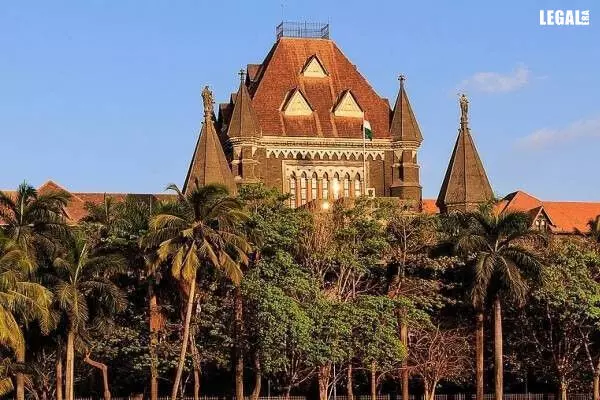- Home
- News
- Articles+
- Aerospace
- Agriculture
- Alternate Dispute Resolution
- Banking and Finance
- Bankruptcy
- Book Review
- Bribery & Corruption
- Commercial Litigation
- Competition Law
- Conference Reports
- Consumer Products
- Contract
- Corporate Governance
- Corporate Law
- Covid-19
- Cryptocurrency
- Cybersecurity
- Data Protection
- Defence
- Digital Economy
- E-commerce
- Employment Law
- Energy and Natural Resources
- Entertainment and Sports Law
- Environmental Law
- FDI
- Food and Beverage
- Health Care
- IBC Diaries
- Insurance Law
- Intellectual Property
- International Law
- Know the Law
- Labour Laws
- Litigation
- Litigation Funding
- Manufacturing
- Mergers & Acquisitions
- NFTs
- Privacy
- Private Equity
- Project Finance
- Real Estate
- Risk and Compliance
- Technology Media and Telecom
- Tributes
- Zoom In
- Take On Board
- In Focus
- Law & Policy and Regulation
- IP & Tech Era
- Viewpoint
- Arbitration & Mediation
- Tax
- Student Corner
- AI
- ESG
- Gaming
- Inclusion & Diversity
- Law Firms
- In-House
- Rankings
- E-Magazine
- Legal Era TV
- Events
- News
- Articles
- Aerospace
- Agriculture
- Alternate Dispute Resolution
- Banking and Finance
- Bankruptcy
- Book Review
- Bribery & Corruption
- Commercial Litigation
- Competition Law
- Conference Reports
- Consumer Products
- Contract
- Corporate Governance
- Corporate Law
- Covid-19
- Cryptocurrency
- Cybersecurity
- Data Protection
- Defence
- Digital Economy
- E-commerce
- Employment Law
- Energy and Natural Resources
- Entertainment and Sports Law
- Environmental Law
- FDI
- Food and Beverage
- Health Care
- IBC Diaries
- Insurance Law
- Intellectual Property
- International Law
- Know the Law
- Labour Laws
- Litigation
- Litigation Funding
- Manufacturing
- Mergers & Acquisitions
- NFTs
- Privacy
- Private Equity
- Project Finance
- Real Estate
- Risk and Compliance
- Technology Media and Telecom
- Tributes
- Zoom In
- Take On Board
- In Focus
- Law & Policy and Regulation
- IP & Tech Era
- Viewpoint
- Arbitration & Mediation
- Tax
- Student Corner
- AI
- ESG
- Gaming
- Inclusion & Diversity
- Law Firms
- In-House
- Rankings
- E-Magazine
- Legal Era TV
- Events
Bombay High Court: Provisions of Place of Supply under the IGST Act are Legal, Valid & Constitutional

Bombay High Court: Provisions of Place of Supply under the IGST Act are Legal, Valid & Constitutional
The Bombay High Court by its division judges coram comprising of Justices Abhay Ahuja and Sunil B. Shukre has upheld the constitutional validity of Section 13(8)(b) and Section 8(2), which deal with place of supply under the Integrated Goods and Service Tax Act, 2017 (IGST Act) provided that the provisions of Section 13(8)(b) and Section 8(2) are confined in their operation to the provisions of IGST Act only and the same cannot be made applicable for levy of tax on services under the Central Goods and Service Tax Act, 2017 (CGST) and Maharashtra Goods and Service Tax Act, 2017 (MGST) Acts.
The principal challenge in two petitions in the present case were related to the vires of section 13(8)(b) and section 8(2) of the IGST.
Section 13(8)(b) creates a deeming fiction that in the case of intermediary services, even if the location of the recipient of the services is outside India, for the purpose of the IGST Act, the place of supply shall be the location of the supplier of the intermediary services.
Under Section 8(2), a person carrying on a business through a branch, an agency, or a representational office in any territory shall be treated as having an establishment in that territory.
The Court noted that on 9th June, 2021 Justice Ujjal Bhuyan had observed that, “we have no hesitation in holding that section 13(8)(b) of the Integrated Goods and Services Tax Act, 2017 is ultra vires the said Act besides being unconstitutional.”
Similar view holding that Section 13(8)(b) of the IGST Act was ultra-vires and unconstitutional was taken in Writ Petition (L) No.639 of 2020.
However, the bench referred to the dissenting decision passed by Justice Abhay Ahuja in Writ Petition No.2031 of 2018 dated 16th June, 2021 holding, “neither Section 13(8)(b) nor Section 8 (2) of the IGST Act are unconstitutional. Also, neither Section 13 (8) (b) nor Section 8 (2) of the IGST Act are ultra vires the IGST Act. Section 13 (8) (b) is also not ultra vires Section 9 of the CGST Act, 2017 or the MGST Act, 2017. Section 13(8)(b) as well as Section 8(2) of the IGST Act are constitutionally valid and operative for all purpose.”
In view of the difference of opinion with regard to the constitutionality of Section 13(8)(b) of the IGST Act, Justice Ujjal Bhuyan struck down the constitutional validity of the provision and allowed the petitions, and Justice Abhay Ahuja expressed his disagreement and had rendered his separate opinion.
Thereafter, the Chief Justice had referred the matters for the opinion of the third judge, Justice G.S. Kulkarni.
Justice G.S. Kulkarni upheld the constitutional validity of Section 13(8)(b) and Section 8(2) of the IGST Act.
In view of the same, the Court in the present case held that the provisions of Section 13(8)(b) and Section 8(2) of the IGST were legal, valid, and constitutional.



